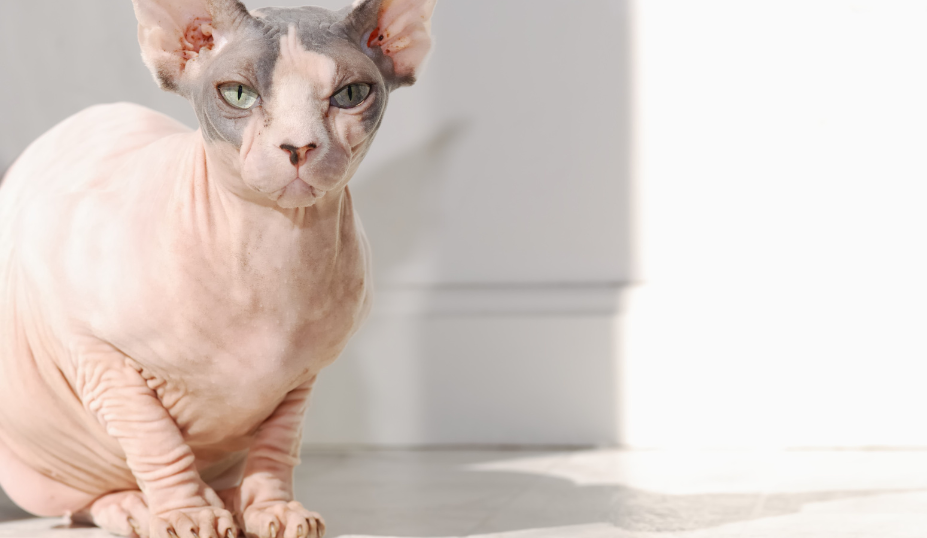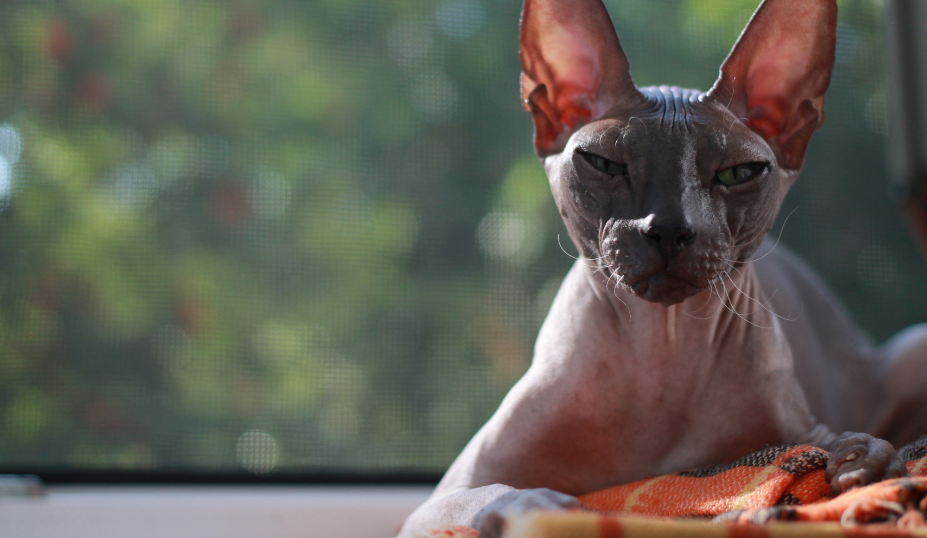The Ultimate Guide to Sphynx Cat Adoption
The Ultimate Guide to Sphynx Cat Adoption: Finding Your Perfect Hairless Companion
Embracing the distinctive charm of a Sphynx cat adoption is a journey unlike any other. These captivating creatures, renowned for their hairless coats and affectionate nature, offer a unique companionship that blends the playful antics of a feline with the warm-heartedness of a canine.
Before you welcome a Sphynx into your life, it is important to understand their specific needs and the commitment required to ensure their well-being. This guide will illuminate the path to Sphynx cat adoption, helping you to prepare for the rewarding experience of caring for these extraordinary pets.
Understanding the Sphynx Cat Breed
The Sphynx cat, a breed known for its distinctive hairless appearance, has a fascinating history that traces back to a hairless cat born in Canada in 1966. This unique feline was the result of a natural genetic mutation, and breeders, recognizing the potential of this unusual cat, encouraged the mutation through selective breeding.
This included unions with short-haired Devon Rex cats, and after more than 30 years of careful breeding, the Sphynx cat was officially recognized by The Cat Fanciers’ Association in 2002.
Characterized by their wrinkly, soft, and warm skin, Sphynx cats are medium-sized with large ears and lemon-shaped eyes. These physical traits contribute to their unique and easily identifiable look. However, their lack of fur often leads to common misconceptions. Despite their hairless appearance, Sphynx cats are not necessarily hypoallergenic as they still produce dander, which can trigger allergies.
Beyond their physical characteristics, Sphynx cats are cherished for their unique personality traits. They are known to be charming, intelligent, and affectionate, often displaying a level of sociability and playfulness that makes them desirable family pets.
Their personalities are often compared to dogs rather than cats, with two primary modes: play and sleep. Sphynx cats are also known for their acrobatic skills, love for high places, and their sense of humor, which often leads to entertaining antics. These traits, combined with their loyalty and easygoing nature, make Sphynx cats a delightful addition to any home.
Health and Care Considerations

Sphynx cats, while generally healthy due to careful selective breeding, are prone to certain health issues. These include obesity, skin problems, ear infections, dental disease, and certain conditions such as Hypertrophic Cardiomyopathy and Hereditary Myopathy. They are also genetically predisposed to sunburn and struggle to steady their body temperature due to their lack of fur. Regular veterinary check-ups are crucial for Sphynx cats to monitor their health and potential issues. These visits canidentify early signs of obesity, dental disease, and other health problems, allowing for timely intervention.
Deworming and keeping up-to-date with vaccinations are also important aspects of their health care. Grooming and skin care are essential for Sphynx cats. Despite their hairless appearance, they still produce body oils, which can cause skin problems if not properly managed. Excessive oil buildup can cause conditions like urticariapigmentosa, which results in itchiness and small red bumps on the skin.
Regular bathing is recommended to keep their skin in healthy condition and prevent excessive oil buildup. In addition to bathing, it's important to clean their ears and nails regularly. Sphynx cats are prone to ear wax issues that can lead to infections, so gentle ear cleaning is necessary.
Nail trimming should also be part of their grooming routine, but care should be taken to avoid cutting past the wick or declawing, which can cause pain and other health issues. Dental care is another important aspect of Sphynx cat grooming. All cats are predisposed to periodontal (gum) disease, but Sphynx cats may be more susceptible due to their high-protein diets. Regular teeth brushing with cat-friendly toothpaste can help avoid tartar buildup and the risk of dental disease.
Preparing for Adoption
Before embarking on the journey of Sphynx cat adoption, it is essential to assess if this unique breed aligns with your lifestyle. Sphynx cats are known for their extroverted nature, thriving in active homes and forming strong bonds with their human companions.
They are playful, sociable, and require a significant amount of attention and interaction. Therefore, potential owners should be prepared to dedicate time and energy to their Sphynx cat's physical and emotional needs.
The cost of owning a Sphynx cat is another crucial factor to consider. Beyond the initial adoption fee, potential owners should budget for regular veterinary check-ups, vaccinations, and potential medical expenses related to breed-specific health issues.
Additionally, Sphynx cats require a high-protein diet and regular grooming, including bathing, ear cleaning, and dental care, which can add to the cost. Creating a Sphynx-friendly environment in your home is an important step in preparing for adoption. These cats are known for their love of high places and their acrobatic skills.
Therefore, your home should be equipped with cat trees, shelves, or other safe climbing options. Additionally, because Sphynx cats lack a fur coat, they are more susceptible to temperature changes. Your home should be kept at a comfortable temperature, and warm blankets or clothes should be available for your cat.
Where to Adopt a Sphynx Cat

When considering Sphynx cat adoption, there are several avenues to explore. One of the most reliable methods is to find a reputable Sphynx cat breeder. Breeders are often active in rescue efforts for their beloved breeds and may have cats available for adoption.
Cat breed shows are also a great place to connect with breeders who specialize in Sphynx cats. However, adopting a Sphynx cat from a breeder is not the only option. There are numerous Sphynx cat rescues and adoption centers that provide loving homes for these unique felines.
Local veterinary clinics, pet professionals such as groomers, pet sitters, and pet supply stores can also be valuable resources in your search for a Sphynx cat. Online resources like Petfinder and Adopt-a-Pet.com are also excellent tools for finding Sphynx cats available for adoption. These platforms allow you to conduct a breed-specific search, showing you all the available Sphynx cats in your area.
However, it's important to note that Sphynx cats are not as common as other breeds, so you may need to be prepared to travel to adopt your cat. Despite of the method you choose, it's crucial to ensure that the adoption process is conducted responsibly. This includes having a good adoption contract that clearly outlines the responsibilities of both parties.
In conclusion, whether you choose to adopt from a breeder, a rescue, or an adoption center, the most important thing is to provide a loving and caring home for your new Sphynx cat. With patience as well as diligence, you can find the perfect Sphynx cat to become a cherished member of your family.
The Adoption Process
The adoption process for a Sphynx cat can vary depending on whether you choose to adopt from a breeder or a rescue organization. When adopting from a breeder, you can expect a thorough screening process, as reputable breeders are keen to ensure their cats go to suitable homes. This process may include an extensive interview, home visits, and even references.
Breeders can also provide detailed information about the cat's lineage, health history, and breed-specific care requirements.
On the other hand, adopting from a rescue or shelter can be a rewarding experience, giving a home to a cat in need. The process may be less rigorous than with a breeder, but it still involves an application, interview, and sometimes a home visit to ensure a good match.
Rescue organizations often have a diverse range of cats, including older cats and those with special needs. Regardless of where you choose to adopt from, a good adoption contract is crucial. This document must clearly outline the responsibilities of both parties, including care requirements, return policies, and health guarantees. It's important to read and understand the contract fully before signing.
Once the adoption process is complete, it's time to prepare for the arrival of your Sphynx cat. This includes setting up a comfortable space with a bed, litter box, food as well as water dishes, and toys. You should also prepare for their unique grooming needs, such as regular baths and ear cleanings.
In conclusion, whether you choose to adopt from a breeder or a rescue, the process requires careful consideration and preparation. By understanding what to expect and preparing accordingly, you can ensure a smooth transition for your new Sphynx cat into your home.
Post-Adoption Care
After adopting a Sphynx cat, the first step is to schedule a veterinary visit. This initial check-up is crucial to assess the cat's overall health, administer necessary vaccinations, and discuss any breed-specific health concerns.
It's also an opportunity to establish a relationship with a vet who will be a key partner in your cat's long-term health care. Integrating your Sphynx cat into your family is an important process that requires patience and understanding. Sphynx cats are known for their sociability and affectionate nature, but they may need time to adjust to their new environment.
It's important to introduce them slowly to other pets and family members, and to provide them with a safe, quiet space of their own. Long-term care for a Sphynx cat involves regular grooming, a balanced diet, and loads of mental and physical stimulation.
Regular veterinary check-ups are also essential to monitor their health and catch any potential problems early. Maintaining a healthy relationship with your Sphynx cat involves understanding as well as respecting their unique needs and characteristics. Sphynx cats are active, playful, and require a lot of interaction, so be prepared to spend quality time with them.
FAQs
Are Sphynx cats common in shelters or rescues?
Sphynx cats are not very common in shelters or rescues due to their rarity and designer appeal. However, it's not impossible to find one if you're willing to travel or wait for the right opportunity.
What are some ways to find a Sphynx cat for adoption?
You can start your search with local veterinary clinics, pet professionals in your area, or cat breed shows. Online platforms like Petfinder and Adopt-a-Pet are also useful tools. Contacting breeders can also be helpful as many are active in rescue efforts for their beloved breeds.
What should I expect when adopting a Sphynx cat?
Whether you're adopting from a breeder or a rescue, you should expect a thorough screening process. This may include an extensive interview, home visits, and references. You should also be prepared to travel as Sphynx cats are not as common as other breeds.
Conclusion
Owning a Sphynx cat brings both joys and challenges. Their playful, affectionate nature and unique appearance make them a delightful addition to any family. However, their need for regular grooming, a high-protein diet, and a warm environment, as well as their susceptibility to certain health issues, present unique challenges that require commitment and understanding.
Adopting a Sphynx cat is a rewarding experience that comes with the responsibility of providing a loving, safe, and suitable home. Whether you want to adopt from a breeder or a rescue, it's important to conduct thorough research, understand the adoption process, and prepare for the unique needs of this breed.
Post-adoption, it's crucial to establish a relationship with a vet, integrate your Sphynx cat into your family gently, and commit to their long-term care. Regular veterinary visits, a balanced diet, and mental and physical stimulation will ensure a healthy and happy life for your Sphynx cat.
In conclusion, Sphynx cat ownership is a journey filled with unique joys and challenges. By adopting responsibly and committing to their care, you can enjoy the rewarding experience of sharing your life with this unique and affectionate breed.









Comments